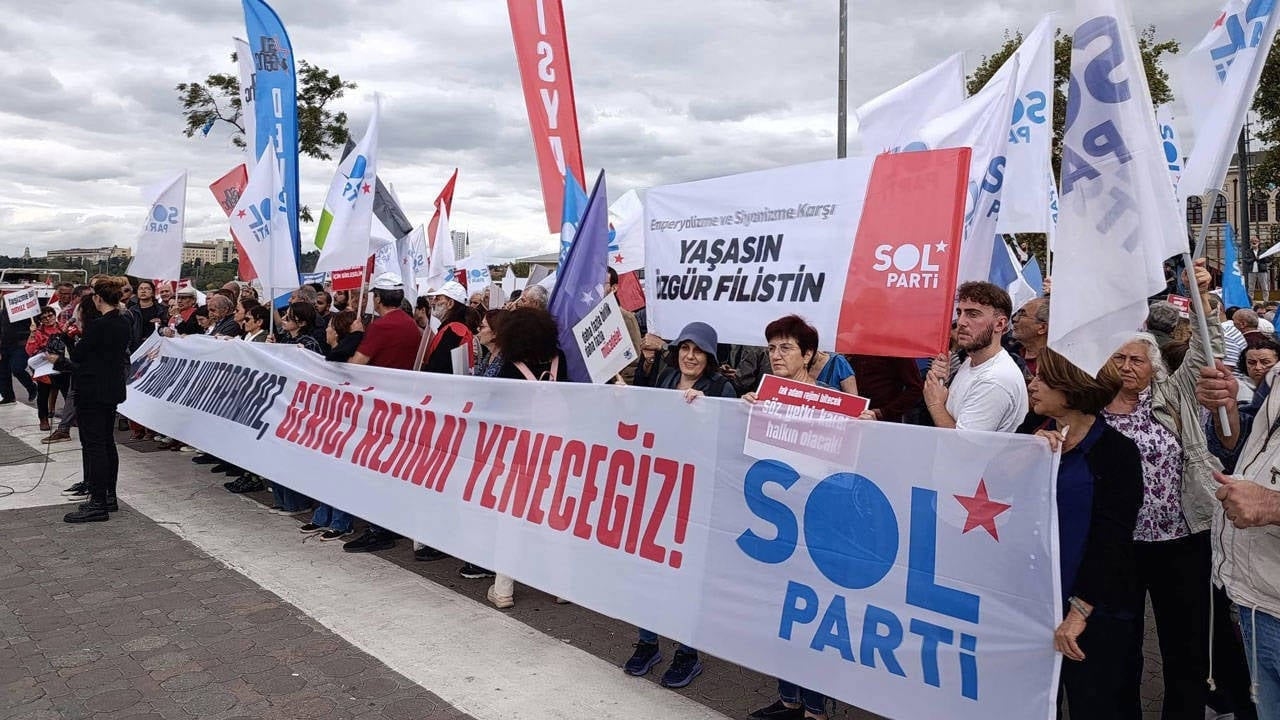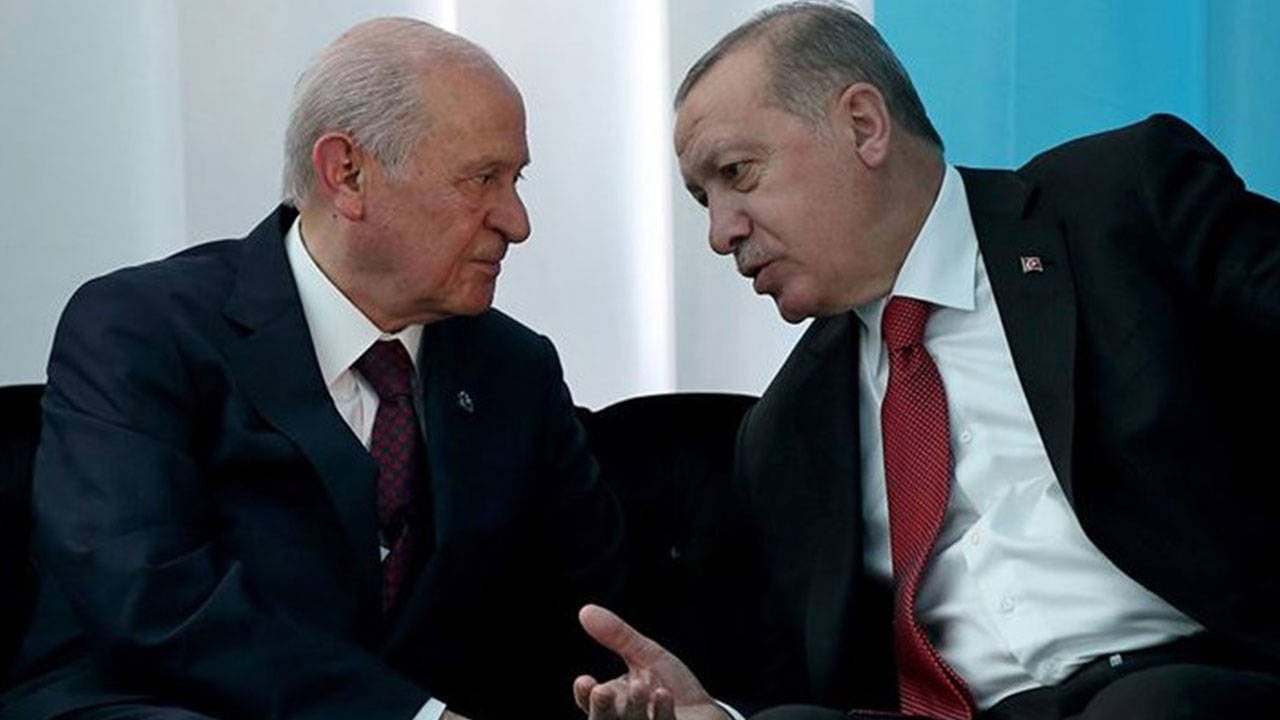How should Israel's decision to annex the West Bank be interpreted?

While the ceasefire and peace period entered into with Hamas on October 13, 2025, through the mediation of the US, which Israel has sought refuge in since 1948 as a hegemonic power alongside regional actors Turkey, Qatar and Egypt and whose veto power it has wielded in UN processes, is progressing on fragile ground, the Israeli Parliament (Knesset)'s approval of the bill providing for the expansion of the occupation of the West Bank has drawn attention back to the region. Tel Aviv's radical, aggressive and reactionary actions and policies, one beginning before the other, threaten the security of the Middle East region as a whole in the context of its aggressive and revisionist actions and aim to destabilize all states in this region, unfortunately continue on their way without heeding the ceasefire and peace. First of all; Sabotaging measures such as the Gaza and Rafah bombings, which aim to undermine the ceasefire in Gaza before it even begins, as well as objections to the inclusion of Qatari and Turkish troops in the international task force to be formed, attempts to block aid trucks at the Rafah entrance by radical protesters, and deliberate firing on civilians, continue to be reported in the press. Despite Trump's strongly threatening and oppressive language and tone warning Hamas not to violate the ceasefire, Israel's unlawful actions are, for some reason, ignored.
In addition to all these developments, the Israeli administration's obvious aim to completely occupy the West Bank, which it has long been gobbling up the illegal settlements it has established, is not actually a surprise to those familiar with the region and the subject. Likewise, although Tel Aviv, which has not had any conflict with the Palestinian Autonomous Authority in Ramallah since 1994, has continued its expansion into the West Bank unabated, while first implementing a "blockade," then an "attack" and "occupation" plan against Hamas-ruled Gaza. In this context, as has been the case for a long time, Jewish settlers are seizing the homes and businesses of the local Palestinians, damaging their vehicles, agricultural lands and belongings, detaining their livestock and destroying their livelihoods. Routine and arbitrary detentions, acts of harassment and violence taking place in full view of the Israeli police, and crimes such as deliberate injury and murder are now becoming increasingly commonplace; The Abbas administration's response to these events has either been absent or weak and feeble, lacking the capacity to exert influence. In this environment, increasing human rights violations and the expanding occupation in the West Bank, along with Gaza, which is at the forefront, have brought the region back into the spotlight after the October 13 ceasefire brought Gaza to a simmer. However, this resurgence has not been a favorable development for the Palestinian Arabs in the region, but rather a pessimistic outlook, such as the officialization of Israel's attempt to take complete control of the Bank. The Israeli Parliament's attempts to annex the West Bank have historically been a frequent topic of discussion and have drawn the ire of the international community.
As a result of the 1967 Six-Day War with the Arab coalition, the Israeli military, which occupied the West Bank, as well as the Sinai Peninsula, East Jerusalem, and the Golan Heights, enabled the establishment of illegal Jewish settlements in the region, thus perpetuating the occupation. Indeed, very recently, on July 25, 2025, the Israeli Parliament approved the annexation of the West Bank under the guise of "imposing sovereignty " by a vote of 71 to 13. The plan, dubbed "Plan E1" by right-wing minister Betzalel Smotrih, envisions annexing 82% of the West Bank and opening 3,400 settlements in this region to Jewish settlers. The annexation plan, which was met with strong criticism from the international community, visiting US Vice President J.D. Vance, and even Trump himself, has been met with harsh criticism from other states in the region, particularly the Turkish Foreign Ministry.
The annexation decision/plan, which aims to end the Palestinian Authority—which Tel Aviv recognized as "autonomous" under the Oslo Accords, signed in 1993 by the PLO and Israel under Washington's mediation and entered into force in 1994—not only betrays and contradicts the spirit of Oslo, but also deals a major blow to peace in the Middle East. By making such a decision, just as the Gaza ceasefire has entered into force, Tel Aviv's message to the states in the region and the entire world is clear: "Let the signing of a peace and ceasefire agreement not mean that Israel has weakened or abandoned its revisionist ambitions!"
Likewise, while it is highly unlikely that it will even adhere to and maintain the ceasefire it agreed to in Gaza, this step by Tel Aviv represents the final stage of its expansionist ambitions over the Palestinian territories, which it has been fragmenting and dividing into smaller pieces for years, making them easy to swallow. Just as the technocratic administration and/or international council/council to be implemented in Gaza with Washington's support is reminiscent of the colonial logic of nearly 100 years ago and the mandate once exercised by Britain and France, the Israeli occupation of the West Bank is a reflection of a Western-style expansionist colonial drive poised to become permanent. In this respect, the annexation decision represents nothing more than Zionism's modern adaptation of the colonialist movement motivated by what Patrick Wolfe described in the 21st century as the "elimination of the natives."
What Israel truly wants to achieve in the region (Palestine), as clearly revealed by this latest annexation decision, is to eliminate the Palestinian presence in Gaza and the West Bank, thus eliminating the Palestinian Question, which has ultimately drawn international attention. Indeed, if Palestinians and the cities they inhabit are no longer present, the pressure on Saudi Arabia and other regional countries, with whom it had tried to establish rapprochement and secure the signing of the Abraham Accords before October 7 (2023), will also cease to exist for a "two-state solution." This will also open the region's economic doors to the US, eliminate all rights granted to Palestine by UN resolutions, and completely collapse the Palestinian front that has existed in the region (in the Arab world) since 1948. While Israel's aim with the annexation decision is so clear and evident, the crucial question is: " Is Washington sincere in its reactionary statements, or is this just a charade?"
Are the reactions given by the US due to a scenario (?) or will Trump keep his word (?) and go that far to sacrifice Netanyahu when necessary (?)...
The coming days and developments will give us the answers to these questions…
Dr. Mehmet BABACAN \ Timeturk
Timeturk





